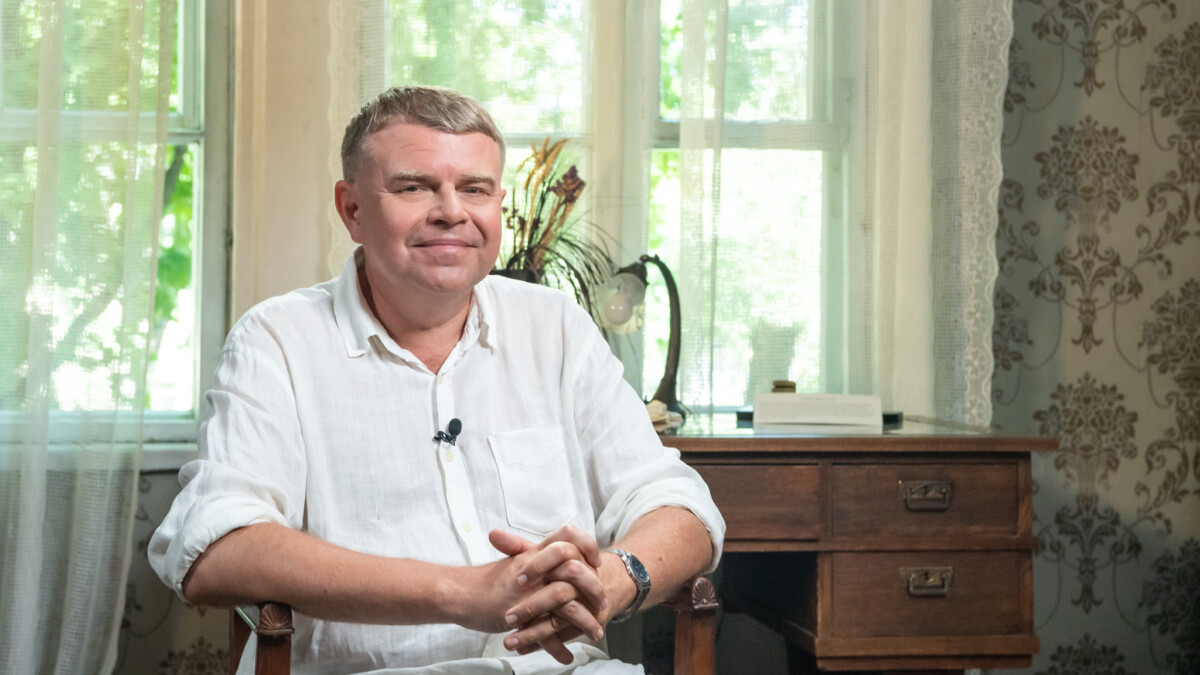EKSA, 2019. 296 pp.
EAN 9789949684045
The Horned Blue Beast (2019) is the fifth novel by Andrus Kivirähk – a satirist, incredibly prolific author of short stories and plays, and one of Estonia’s most popular children’s writers. Kivirähk’s prose, which frequently draws upon Estonian mythology, is his most serious creative undertaking, carefully conveying well-considered messages and is quite profound in nature compared with his other, colorful and sometimes frivolous writing.
The protagonist of The Horned Blue Beast is the artist Oskar Kallis (1892–1917). According to the author, he carried the idea for the book around with him for five years: “I thought about what to do with that Oskar Kallis of ours. The writing itself took only six months or so, I reckon.”
Kallis was one of the first to ever receive artistic training in Estonia. His life, ended prematurely by tuberculosis at the age of 25, was tragic on the whole. Even so, the young artist managed to secure himself a place in art history with some of his best works: illustrations of the Estonian national epic Kalevipoeg. Kivirähk’s novel is likewise built upon fantasies that spring from Kallis’s paintings. The artist’s dual realities of life and art blend into a single fantastic world of characteristically Kivirähk quirkiness, which forms the backbone of the book. Thus, figures in Kallis’s paintings – such as Death – transform into significant, animate characters. The artist discovers a literary door leading into the world of folklore, which he begins to visit to paint his subjects in the flesh. In The Horned Blue Beast, Kivirähk masterfully exercises his talent for fantasy as he depicts the artist’s inspiration.
The novel is written in diary format as Kallis lies on his deathbed. Although it is light and youthfully capricious in style, Kivirähk uses his main character to debate national art, mythology, and the mission of the artist. Kallis is, in fact, only one of many deceased cultural figures the author has called up in his works, two other outstanding examples of which are the dancer Erika Tetzky in Liblikas (Butterfly, 1999) and the beginning playwright Adolf Rühka in Adolf Rühka lühikene elu (Adolf Rühka’s Short Life, 2005).
The Horned Blue Beast is not tragic in tone and dying at a young age is nothing terrible for Kivirähk’s character – the author himself has even remarked that it has a happy ending. Kallis, who falls in love with Death in the form of a young woman, is ultimately united with his beloved for good.
Maarja Vaino Ph.D. is a literary researcher and the director of the Tallinn Literary Center. With a phobia of garlic and onions, she might well also be a vampire

